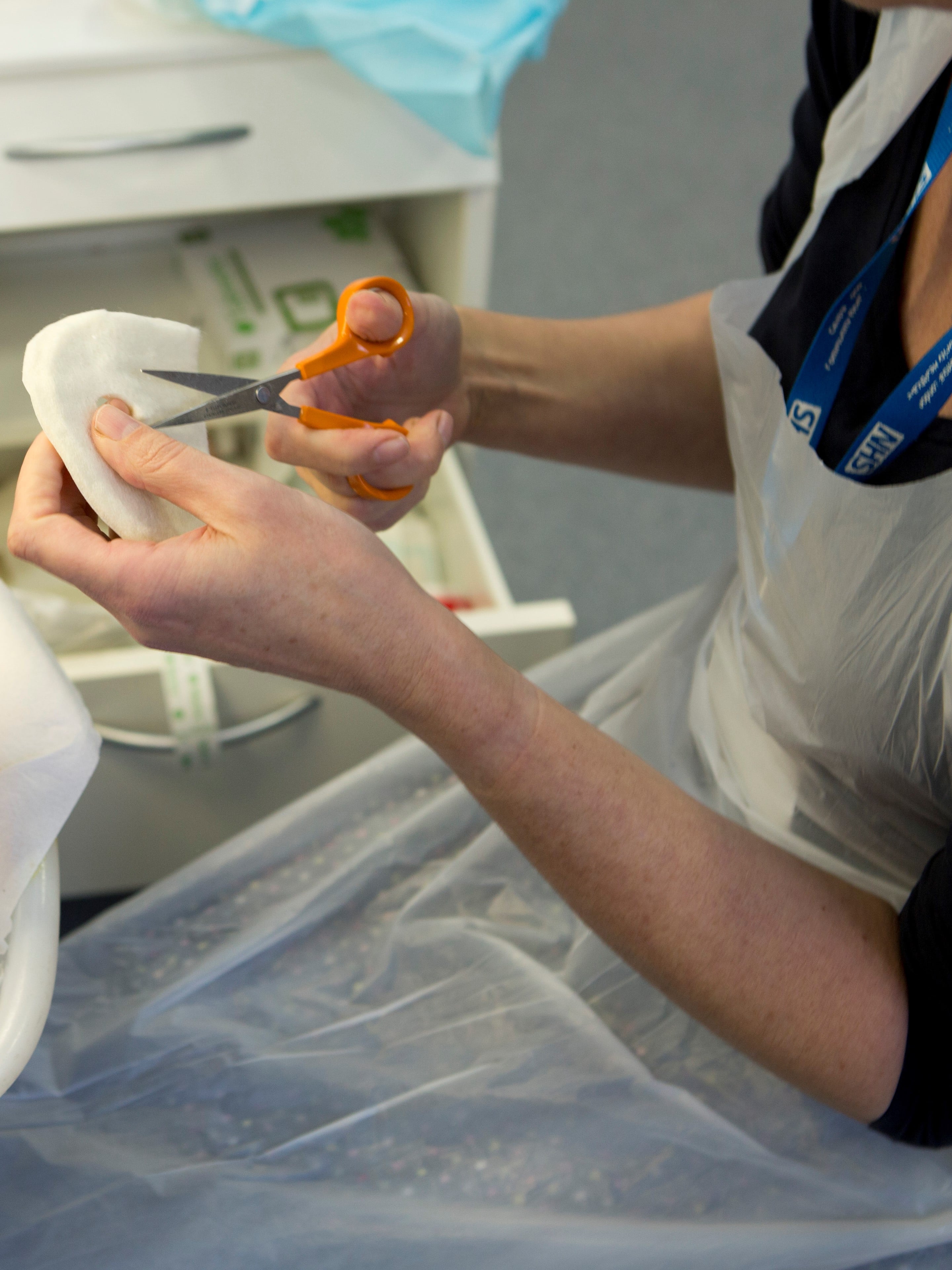This exciting new role commenced in January 2019 as a partnership between Rotherham, Doncaster and South Humber NHS trust (RDASH) Tissue Viability service and the Doncaster ASPIRE Drug and Alcohol Service.
The role was pilot-funded for a year due to an identified gap in care provision. RDASH tissue viability services noted there was a high number of ‘did not attend’ appointments in this client group. At the same time the Aspire team approached tissue viability services for support, as they perceived a need for a cohort outside of regular primary care contact and support, often using A&E for routine dressings. They did have a specialist wound nurse 10 years prior, but this had been cut back due to lack of resources.
It is known that attending timed clinic appointments can be a challenge for vulnerable and often chaotic people with drug and alcohol addiction, which brings its own stigma. However, the majority are not ‘housebound’, and therefore do not meet district nursing criteria. This means that many of their wounds go untreated, which in turn can lead to more serious conditions like sepsis and a visit to the Accident and Emergency Department. The new role has aimed to target this potential gap and pathway in care, and provide a more accessible option for people with wounds who have drug and alcohol problems, including people who are homeless and without GPs.
Aspire keyworkers, health and social care professionals, and patients themselves can all refer in directly for wound care. Usually, patients are already registered with the Aspire service. If not they are encouraged to access the service in the near future for help with their drug and alcohol problems including dependency issues where medication can support some of their addictions. The nurse sees clients mostly at pre-arranged appointments with their drug and alcohol key workers, any time between Mon-Fri 9-5pm, at any of their five Aspire locality bases, mainly in the town centre. On Wednesdays the nurse attends a ‘health inclusion clinic’ at Warf House Hostel, a hostel for homeless people, to give advice. This service is run by Primary Care Doncaster. Primary Care Doncaster delivers other health outreach clinics to inclusion health groups, but this site has highest need in terms of wounds, and is the only one with a purpose built treatment room.
Wounds can range from infected skin conditions, to leg ulcers due to poor hygiene, nutrition and IV drug use, and other wounds including general injuries or self-harm wounds. The leg ulcers are generally complex and chronic, and require joint working in partnership with GPs, other tissue viability specialist nurses and vascular consultants. Assessment and treatment are undertaken, and a plan of care developed, which may include ongoing appointments at planned keywork sessions. This often will create better attendance as the patient gets multiple help on a physical and physiological level, often including the collection of prescriptions for medication to support dependency issues.
The keyworkers are nurses themselves (mental health and general), but not specialist so these are in effect joint consultations. However, in some cases the keyworker is not from a health background, and the wound nurse also provides harm reduction, nutrition and infection control advice. The nurse also works closely with the Hepatitis C nurse. 150 referrals have been seen by the service since January 2019.
As soon as is possible, patients are transferred to mainstream services to avoid over-reliance and dependency. Doncaster’s tissue viability service is primarily an advisory service only, and does not hold clinics for regular clients. As such clients are generally referred back to a practice nurse. After a full assessment has been undertaken, and an appropriate regime developed, a joint visit is arranged with their practice nurse to hand the patient over. Some wounds are healed before this is needed.
Wound care has also been a key part of a Street Doctor / pop up hub approach during the winter period – with drug and alcohol, mental health, a blood borne virus nurse and housing and social support doing outreach. This is supported by the police who help to identify people on a set day – on account of the police knowing their usual activities (such as street drinking, or begging) and locations.
The project started as a year secondment, but the service is applying for further funding.
For further information, please contact Sarah Clayton, Specialist Drug and Alcohol Wound Care Sister at sarah.clayton13@nhs.net or call on 07917132026.
 Back to Resources
Back to Resources 
